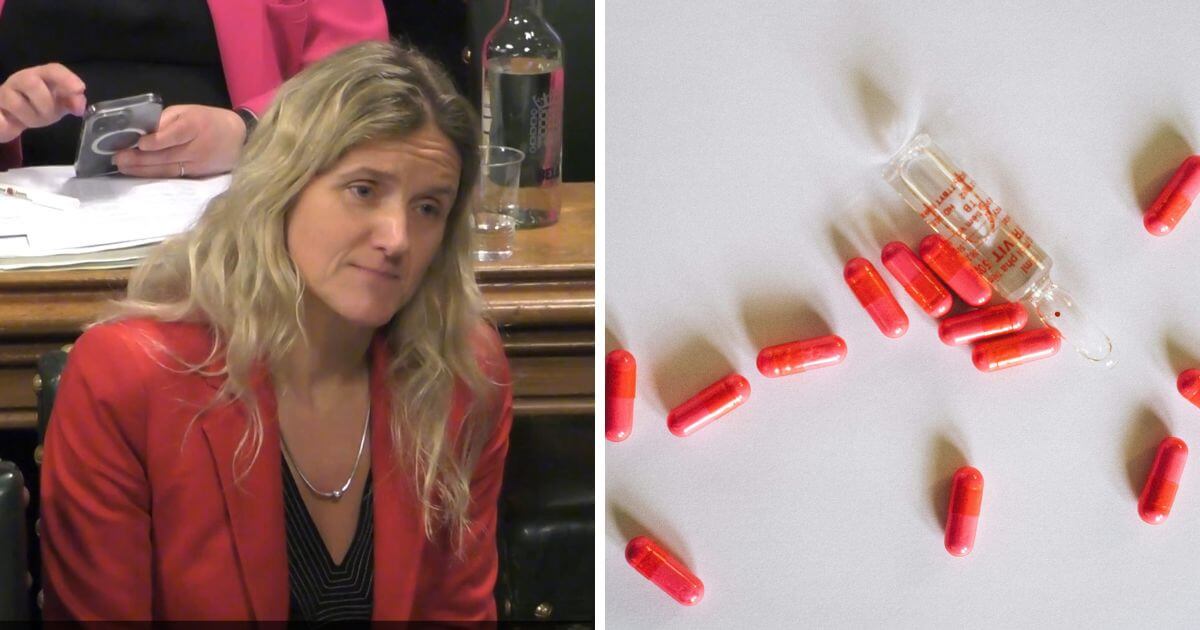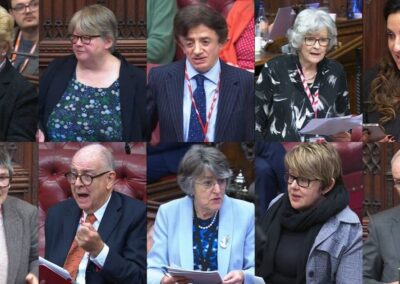Terminally ill people who are depressed could receive assisted suicide under the criteria in the Leadbeater assisted suicide Bill after proposals to tighten legislation were rejected.
Last month, the parliamentary committee scrutinising the assisted suicide Bill voted against amendments that sought to prevent terminally ill people with mental illnesses from accessing assisted suicide if their illnesses cloud their judgement.
Whilst the Terminally Ill Adults (End of Life) Bill applies to mentally competent adults who are thought to have fewer than six months to live, the legislation defines “mental capacity” in the terms given under the Mental Capacity Act 2005 (MCA), which states “a person must be assumed to have capacity unless it is established that he lacks capacity”.
MCA “not sufficient” according to Royal College of Psychiatrists
In written evidence sent to the Committee, the Royal College of Psychiatrists (RCP) explain why the MCA is “not sufficient” for people making such an important decision, underlining the difficulties people with both mental and physical illnesses have in decision-making.
The RCP said “Decisions can be particularly complex for people with a physical terminal illness and mental disorder. There will be those who have significant histories of mental disorder prior to the physical terminal illness, and others who have mental disorder primarily in the context of their terminal physical illness. Hopelessness is a common symptom of depression and can affect a person’s ability to weigh information in the balance; anxiety can amplify fears of future suffering”.
The RCP warned that someone with a physical and mental illness “would not necessarily be deemed ineligible”. The RCP gave an example of a person with terminal cancer and clinical depression “which is influencing their wish to die”. However, under the Bill, this person may “be determined in accordance with the MCA as having capacity to decide to end their own life and therefore eligible for [assisted suicide]. While they may be capacitous, they might feel differently at a future time if provided with appropriate interventions and support to treat a co-occurring mental disorder”.
A similar point was also made during the Committee’s meeting at the end of January. Dr Annabel Price, representing the Royal College of Psychiatrists, related her experience of how people who want to die often change their minds when they get adequate pain relief. She said that “Unresolved physical symptoms make people want to die, and when that pain is better, people no longer feel that way”, reminding the Committee that even if someone decides to have an assisted suicide, they can change their minds when adequate support is provided. She added that depression is “common” near the end of life. However, if depression is treated, there is often a “significant change” in a wish to hasten death.
Proposals to tighten legislation rejected
Last month, an amendment by Lib Dem MP Sarah Olney, which was written in response to these concerns from the RCP and MPs, was voted down by the Committee by 15 votes to 8. It proposed using the word “capacity” rather than “ability” in the Bill. This would enable doctors to effectively assess a person’s eligibility for an assisted suicide. She said “My amendment… proposes that we should assess people’s ability to make the decision and not just their capacity”, adding that “all reference to mental capacity is assumed to refer to the Mental Capacity Act 2005, but I do not believe that that is sufficient for the purposes of the Bill”.
“When people are thinking about whether assisted [suicide] is an appropriate decision for them, I do not think that it is safe for them to be judged merely on the basis of their capacity”.
Olney argued that “the Mental Capacity Act was not drafted in anticipation of it ever being used for this kind of scenario [assisted suicide]” and “is unsuitable for this purpose”.
She said “Under the Mental Capacity Act, someone must be completely unable “to understand the information relevant to the decision…to retain that information…to use or weigh that information as part of the process of the making the decision, or…to communicate his decision”.
“If they are only partially able to do so, they will still be considered to have capacity under the Mental Capacity Act, so it is not a safeguard to protect a terminally ill person who happens to be suicidal due to depression”.
However, Lewis Atkinson MP, one of the 15 Committee members who rejected the proposed safeguard for people with mental disorders, claimed “We should not be preventing anyone from accessing an option merely because of a mild element of depression”.
Mental Capacity Act not suitable for assisted suicide
Other MPs shared Olney’s concerns that the Mental Capacity Act is not suitable for assisted suicide. Daniel Francis MP pointed out that the Mental Capacity Act was not written for the purpose of assessing capacity for assisted suicide, but “to enable people to carry out day-to-day scenarios, such as buying a coffee or doing their banking, so that they are not challenged in every transaction in their life. It is therefore a very low bar to be deemed to have capacity”.
Francis also questioned the effectiveness of doctors in assessing mental capacity by referring to his own “lived experience” of looking after his “learning-disabled child”. He said he and his wife received phone calls “all the time” from doctors who wish to speak to his daughter, “despite their having read the notes saying that she is an 11-year-old with 12 words and a severe sight impairment”.
Francis said “I therefore query…how well some aspects of the Mental Capacity Act are currently being carried out”. Sean Woodcock MP said “we heard from three sets of psychiatrists who all cast doubt on the suitability of the Mental Capacity Act for decisions such as assisted [suicide]”.
Danny Kruger MP reminded MPs that Dignity in Dying (formerly Voluntary Euthanasia Society) was delighted with the Mental Capacity Act as they recognised it would help their objectives to make assisted suicide legal.
Spokesperson for Right To Life UK, Catherine Robinson, said “To legalise assisted suicide would present an acute threat to vulnerable people, especially terminally ill people who are also suffering from mental illness. The last thing vulnerable people need is help to take their own lives, yet this is what is being proposed in Leadbeater’s dangerous Bill”.
“Every suicide, without exception, is an utter tragedy and the Bill should be scrapped immediately”.












